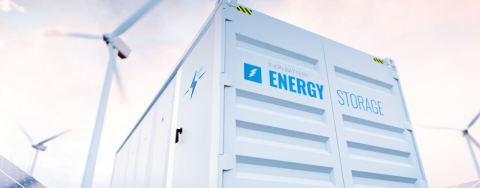Energy arbitrage in the context of energy storage is an energy management strategy that involves purchasing electricity from the grid when prices are low, then storing it and selling or using it when prices are high. This maximises profits from stored energy resources, increasing the economic efficiency of investments in energy storage.
What is energy arbitrage?
Energy arbitrage is a function of energy storage systems that optimises costs and revenues by charging batteries in series at low energy prices and discharging them during peak demand hours when prices are high. This mechanism requires an advanced control and forecasting system that takes into account current and predicted energy prices and weather conditions for renewable energy sources.
Energy arbitrage functions
- Purchasing energy at times when market prices are lowest,
- storing energy in batteries for later sale or use,
- selling or using stored energy during periods of high prices,
- integration with a system for forecasting energy prices and weather conditions,
- maximising profits and efficient use of energy storage.
Benefits of energy arbitrage
- Significant increase in the profitability of energy storage facilities, both those cooperating with renewable energy installations and those operating independently,
- better use of energy stored in facilities that would often remain idle without arbitrage, especially during periods of low renewable energy production,
- stabilisation of energy prices on the market by balancing supply and demand,
- support for energy security by reducing the risk of shortages during peak consumption periods,
- optimisation of energy costs for consumers and increased profitability of investments in storage facilities.
Why is it worth using energy arbitrage?
The use of arbitrage in energy storage facilities allows for higher profits, even tripling revenues through intelligent management of charging and discharging cycles. This allows for fuller utilisation of the energy storage facility's potential throughout the year and reduces economic risk. In an era of increasing energy price volatility and greater integration of renewable energy sources, energy arbitrage is a key tool for optimising the operation of storage facilities and stabilising the modern power grid.

